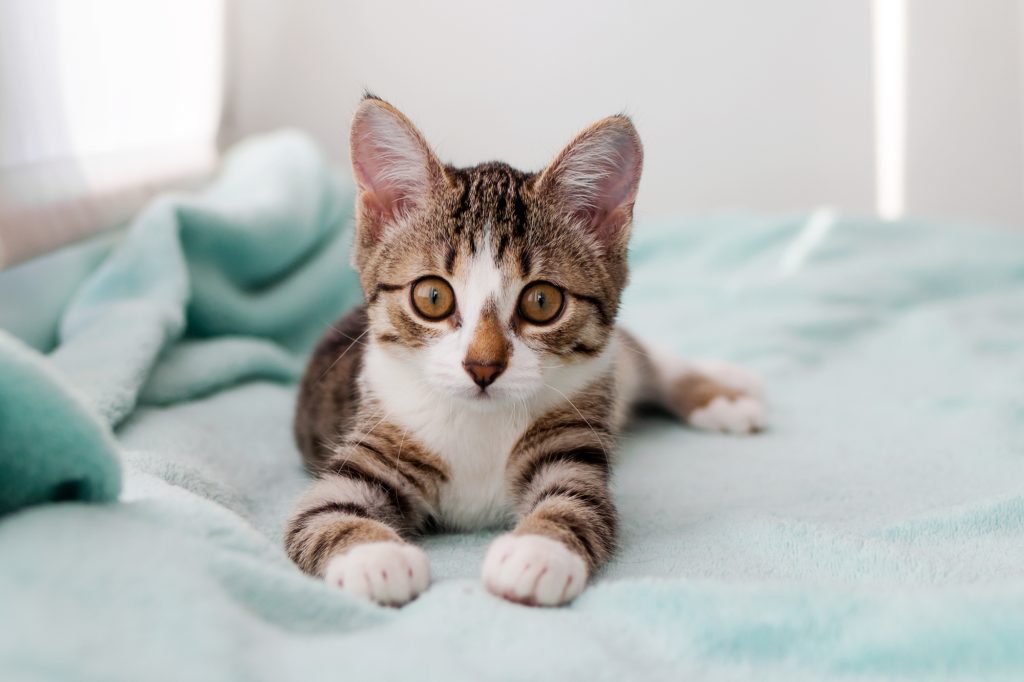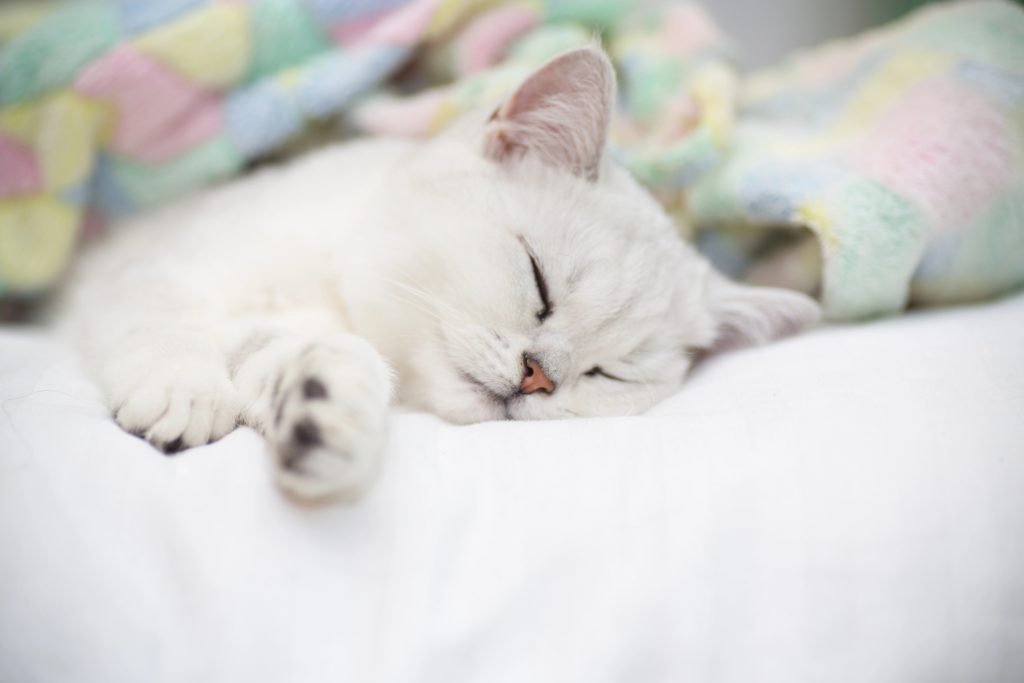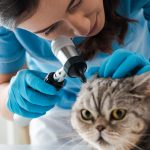Table of Contents
When pet parents notice a bad smell lingering on their feline friends, it’s natural to wonder why. Cats are usually clean animals, thanks to their regular grooming habits. However, if your furry friend starts to emit an unpleasant odor, it could be a sign of underlying health issues, such as urinary tract infections or periodontal disease. Before you sing “smelly cat” to your companion, it’s important to investigate the cause and take your cat to the vet if necessary.
Foul feline odors can arise from a variety of sources, including ear problems that lead to ear odor, or long-haired cats struggling with maintaining their coat, which can also contribute to a bad smell. It’s crucial for cat owners to be attentive to their pets’ hygiene, including brushing your cat’s teeth and ensuring their litter box is clean, to prevent territorial scent markings from becoming a stinky issue.
The Intriguing World of Cat Scents
Cats communicate and interact with the world through scent, and not all feline odors are signs of trouble. A healthy cat may emit natural smells that are not offensive. Cat owners should be familiar with their feline friend’s normal scent to better detect when something is amiss. Regular grooming is an essential part of cat care, helping to maintain a pleasant-smelling coat and reducing the accumulation of dirt and oils that can cause a bad smell.

Natural Odors Associated With a Healthy Cat
While a bad smell can be concerning, cat owners should recognize that not all cat odors are problematic.
• Pheromones and Scent Marking
Cats produce pheromones, which are chemicals that they use to communicate with other cats and mark their territory. These scent markings are not usually detectable by humans and are a natural and healthy part of feline behavior. However, when your cat feels the need to intensify their scent marking or if they are stressed, you might notice a more potent smell.
• Mild Litter Box Odor
It’s normal for a cat’s litter box to have a mild odor due to cat urine, but it shouldn’t be overpowering. Cats have two anal glands that can produce a foul smell if not expressed properly, and a dirty litter box can exacerbate this issue. Keeping the litter box clean and well-maintained is key to controlling these odors and ensuring your home stays fresh.
• Occasional Food-Related Smells
Sometimes, what goes into your cat can come out as a stinky cat food smell. Certain foods may not agree with your cat’s digestive system, leading to unpleasant odors. Monitoring your cat’s diet and making adjustments can help mitigate these occasional whiffs of food-related smells.
Potential Causes of Bad Cat Odor
Bad cat odors can be a red flag for health issues such as gum disease, tooth decay, and infections that cause bad breath in cats. Keeping your cat’s teeth cleaned regularly and practicing prevention, like brushing your cat’s teeth, helps avoid these smelly concerns.
1. Skin and Coat Issues
Sometimes a bad smell is a hint that your cat is experiencing skin or coat issues. These problems can be caused by parasites, allergies, or even digestive issues that affect skin health. A cat’s skin and coat are good indicators of their overall health, so a foul odor can be a sign that something is off. Keeping an eye on your cat’s coat condition and seeking veterinary advice if you notice anything unusual is vital for your pet’s well-being.
Regular grooming is especially important for cats with long or thick fur, as these furry friends are more prone to matting and debris getting caught in their coat. By brushing your cat often, you help distribute natural oils, remove dirt, and prevent odors from becoming an issue. Grooming also offers a chance to check for any skin abnormalities that might need attention.
2. Dental Problems
Dental problems in cats, such as plaque buildup or gingivitis, can cause bad breath and a generally unpleasant odor. Cats with dental issues may also have trouble grooming themselves effectively, leading to a dirtier coat that can smell bad. Regular dental check-ups and cleanings can prevent these odors from developing.
When a cat’s mouth is in pain, they might stop grooming altogether, which can lead to a more noticeable odor over time. Observing your cat’s behavior, such as reluctance to eat or pawing at their mouth, can be indicative of dental discomfort. Addressing these issues promptly with your veterinarian can ensure your feline friend stays happy, healthy, and smelling good.
3. Dietary Factors
The food your cat eats plays a significant role in how they smell. A diet that is not well-suited to your cat’s digestive system can lead to unpleasant odors. It’s important to feed your cat a balanced diet and pay attention to how different foods may affect their scent.
4. Litter Box Problems
Litter box issues are a common source of bad smells in a cat-loving household. A dirty litter box not only causes a foul smell but can also discourage your cat from using it, leading to accidents around the house. Cats are meticulous creatures, and a clean litter box is essential for their comfort and hygiene.
5. Medical Conditions
Various medical conditions can cause bad smells in cats. Ear mites, for example, can lead to a musty smell in the ear canal, while skin problems can create an unusual odor. It’s important to watch for signs of problems in cats, such as excessive scratching or shaking of the head, and to seek veterinary care if you suspect something is amiss.
6. Ear Problems
Ear problems can cause an array of symptoms in cats, including a musty smell. Conditions like yeast infections or ear mite infestation can lead to a buildup that resembles coffee grounds in the ear canal, contributing to a bad odor. Feline ear infections should be treated promptly to prevent discomfort and more serious complications.

Identifying and Addressing the Odor
Identifying the source of bad smells in cats is crucial for their health. Conditions like kidney disease, bacterial infections, and even oral tumors can present with bad smells, especially if they are coming from the mouth. Understanding the potential causes of cat odors can help in seeking the appropriate treatment.
Observing the Cat’s Behavior and Appearance
When trying to pinpoint the cause of a bad smell in your cat, observing their behavior and appearance is a good starting point. Changes in grooming habits, a decrease in activity, or visible signs of discomfort can all be clues. Additionally, checking for signs of dental issues, skin problems, or ear infections can help you address the odor at its source.
By keeping a watchful eye on your cat and maintaining their grooming routine, you can often prevent bad odors from becoming a persistent issue. Should you notice anything out of the ordinary, a visit to the veterinarian is warranted to ensure your kitty’s health and happiness aren’t compromised by an underlying condition.
Consulting With a Veterinarian
If your cat is emitting a persistent unpleasant odor, it’s essential to consult with a veterinarian. Cats are experts at hiding discomfort, so an offensive smell could signal underlying health issues. A thorough check-up can help diagnose problems like dental disease, skin infections, or other medical conditions that could be causing the smell. The vet can also offer advice on addressing grooming troubles, especially if your cat has difficulty grooming itself.
Implementing a Comprehensive Grooming Routine
For cats with trouble grooming, it’s crucial to implement a comprehensive grooming routine. Regular brushing helps remove dirt, grease, and dead hair, preventing matting and reducing odors. Bathing your cat may be necessary, especially if they’ve gotten into something particularly smelly or sticky. However, bathing should be done sparingly and only when needed to avoid drying out your cat’s skin.
Preventing Future Cat Odor
Preventing cat odors starts with a consistently clean litter box. Scooping the litter box daily and replacing the litter regularly are simple yet effective methods to keep odors at bay. Combine this with routine grooming and a healthy diet to minimize the chance of future smelly surprises.
• Establishing a Consistent Grooming Schedule
Keeping your cat smelling fresh requires a consistent grooming schedule. Set aside time each week for brushing to remove loose fur and distribute natural oils, which helps prevent skin irritation. Regular ear cleaning and nail trimming should also be part of the grooming routine to keep your feline friend looking and smelling their best.
• Providing a Balanced and Nutritious Diet
A balanced and nutritious diet is key to preventing unwanted odors in cats. High-quality cat food supports digestive health and reduces the likelihood of smelly feces. It also promotes a healthy coat, which can naturally minimize odors. Ensure your cat has access to clean water at all times to support overall health and hygiene.
• Maintaining a Clean and Odor-Free Environment
A clean and odor-free environment benefits both you and your cat. Regularly wash your cat’s bedding, toys, and any fabric they frequently contact. Use pet-safe cleaners to remove any accidents outside the litter box promptly. Ventilation is also important, so open windows when possible to allow fresh air to circulate and dilute any lingering odors.

Frequently Asked Questions
1. How can I tell if my cat’s odor is a sign of a medical problem?
If cat odors are persistent and accompany other symptoms, it could indicate a medical problem. An ammonia-like smell may point to kidney disease, while a foul odor coming from the mouth could suggest dental issues or oral tumors. Bacterial infections can cause skin odors, and if your cat uses the litter box frequently and has a strong urine smell, it might be a urinary tract issue. Pay attention to your cat’s rear end too, as an unusual smell there might indicate anal gland problems.
2. What are the best ways to keep my cat’s coat and skin healthy?
To maintain your cat’s skin and coat health, regular brushing is crucial to remove loose fur and prevent matting. A high-quality diet supports skin health, reducing the risk of flaky skin and dandruff. Addressing any health issues promptly, including bacteria or yeast infections, ensures that your cat’s skin remains healthy. Don’t forget about dental health, as poor oral hygiene can affect overall health and contribute to skin issues.
3. How often should I bathe my cat to control odor?
Under normal circumstances, cats do not require frequent baths, as they are proficient self-groomers. However, if cat odors become noticeable, and your cat smelling less than fresh becomes a concern, a bath might be necessary. Generally, bathing once every few months or when visibly dirty is sufficient to control odors without disrupting their natural grooming habits.
Conclusion
Understanding why a cat smells bad can be crucial for both the comfort of pet owners and the health of the cat. From normal scents related to pheromones and their diet to concerning odors stemming from skin problems, mouth odors, or even oral tumors, identifying the root cause is the first step to resolution. A fruity smell, for instance, may indicate a dietary issue or a serious medical condition like diabetes, underscoring the importance of vigilance and prompt action when unusual odors arise.

Hi, I’m Zoey, a devoted mom to two charming Siamese cats. My passion lies in assisting fellow pet owners in providing optimal care for their cats. On CatsEuphoria, I share practical tips and relatable stories, inviting you to join me in appreciating the authentic bond between humans and our beloved feline companions.




